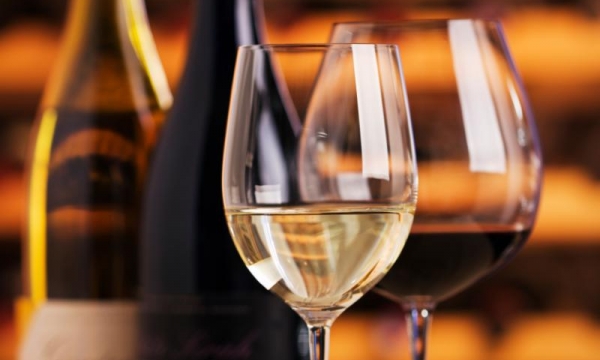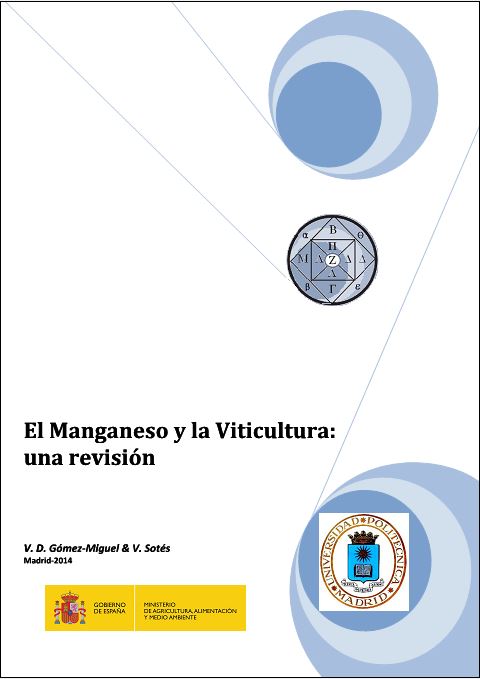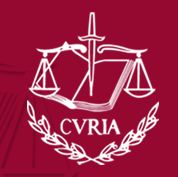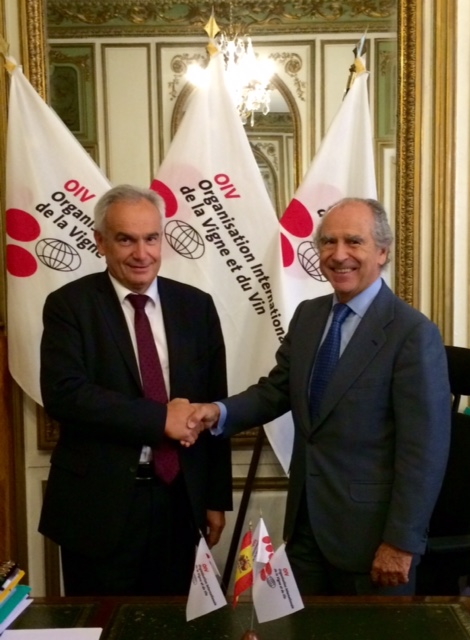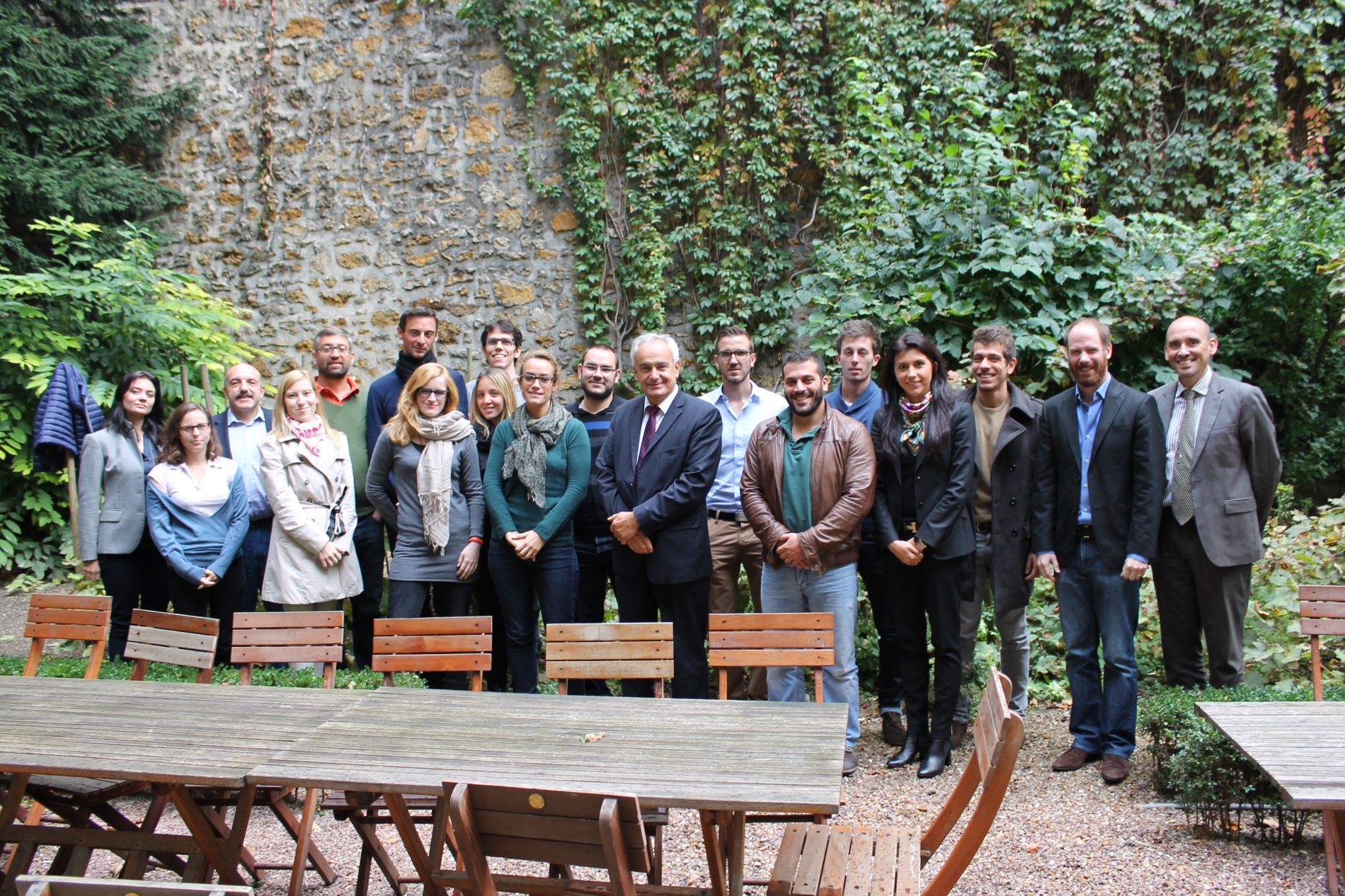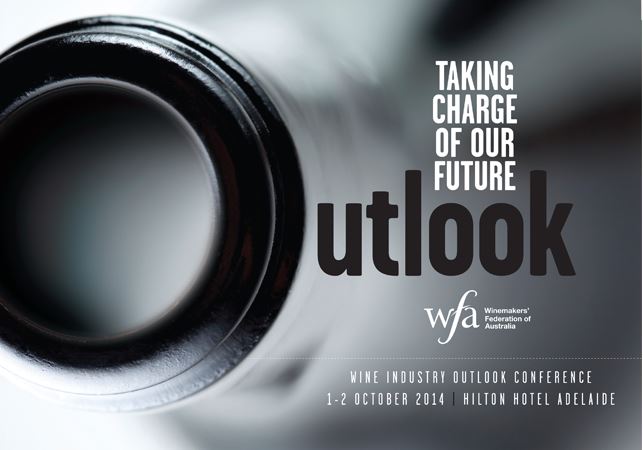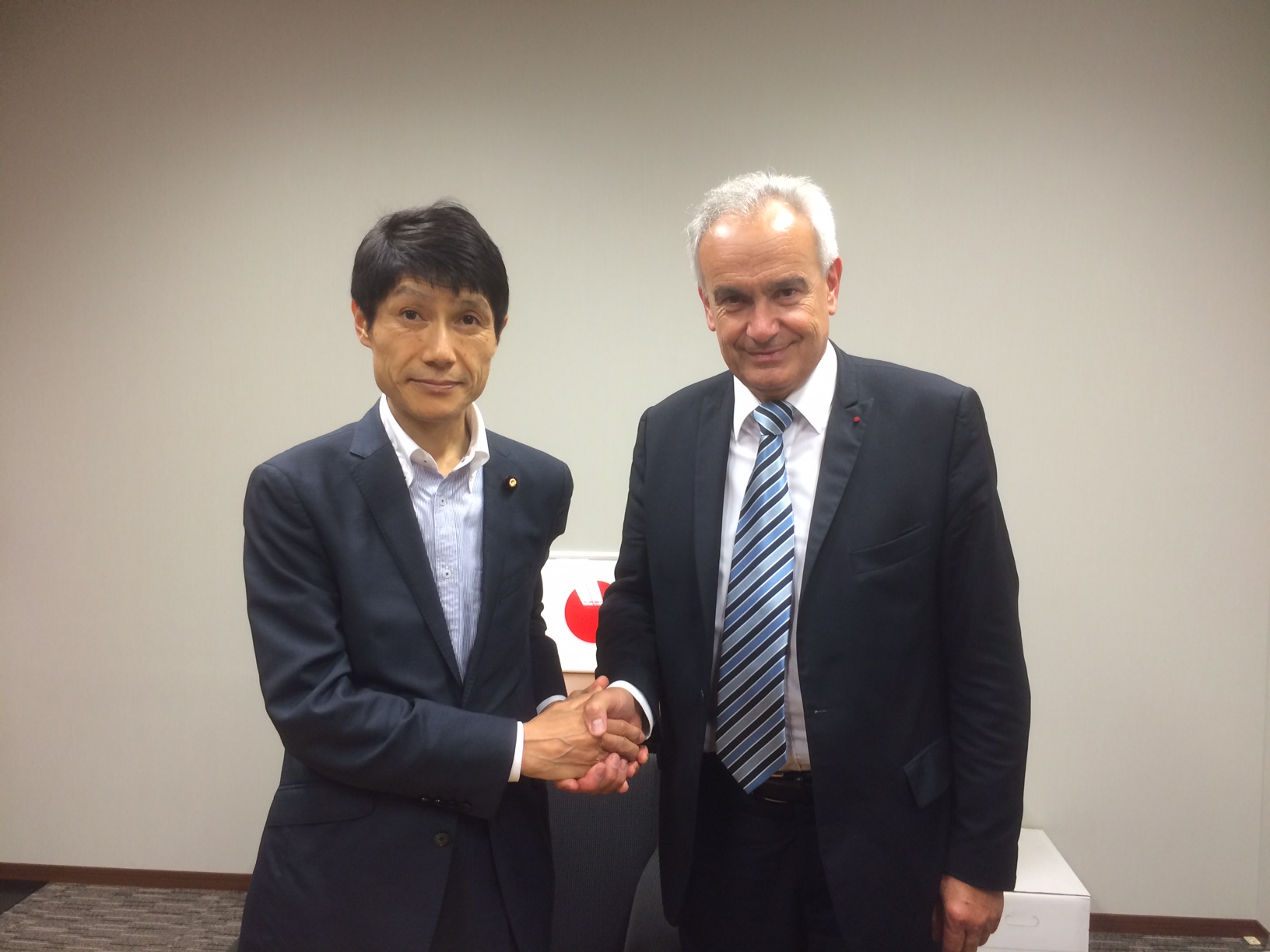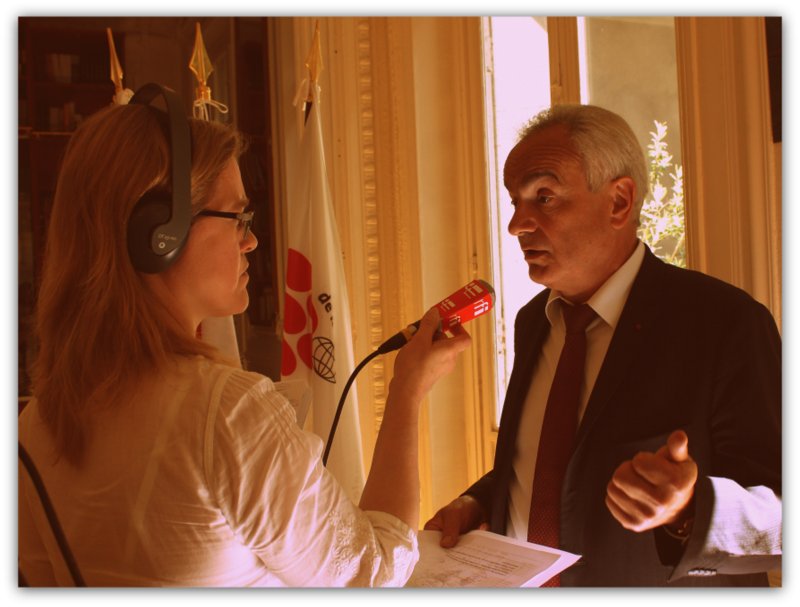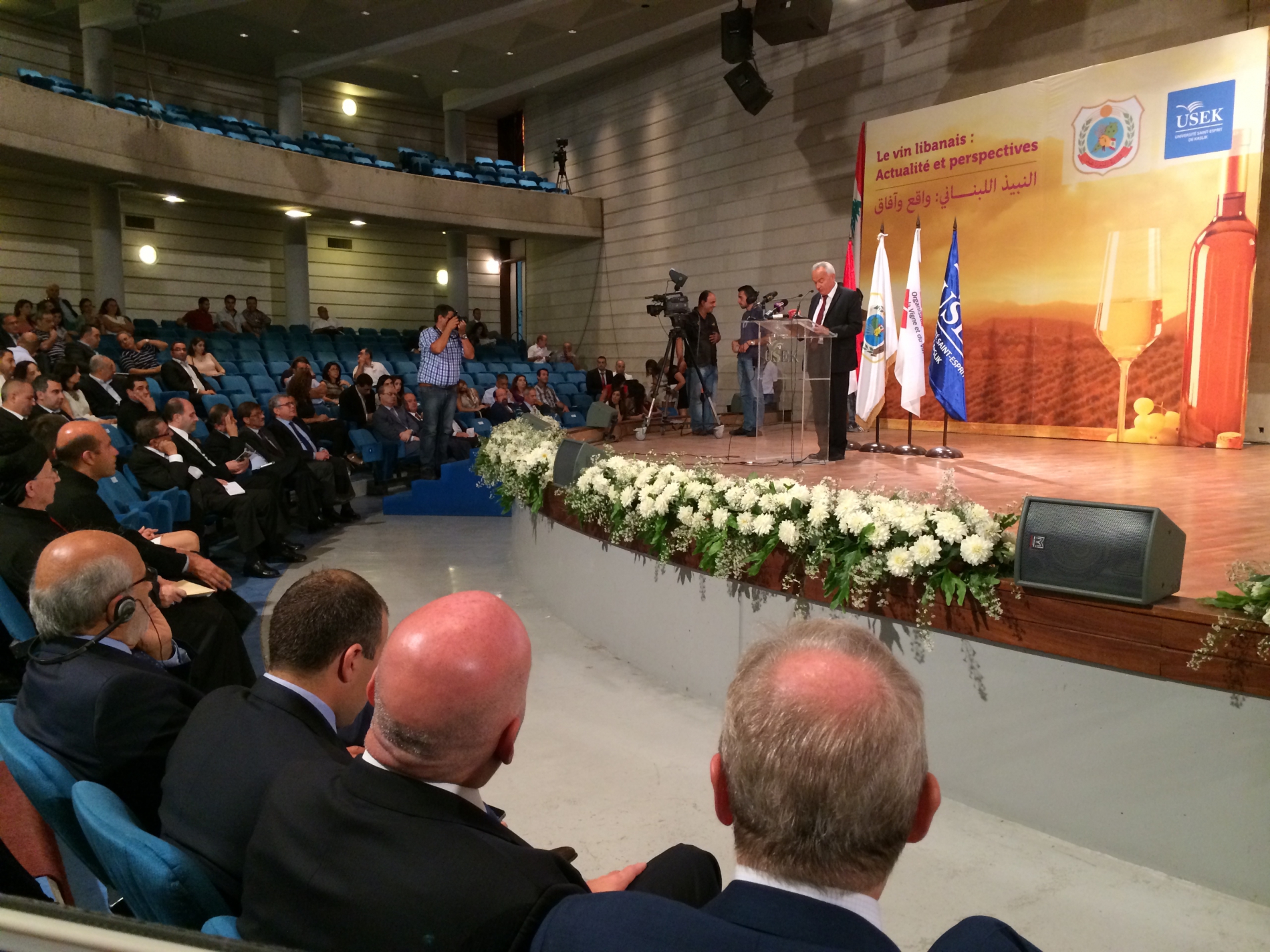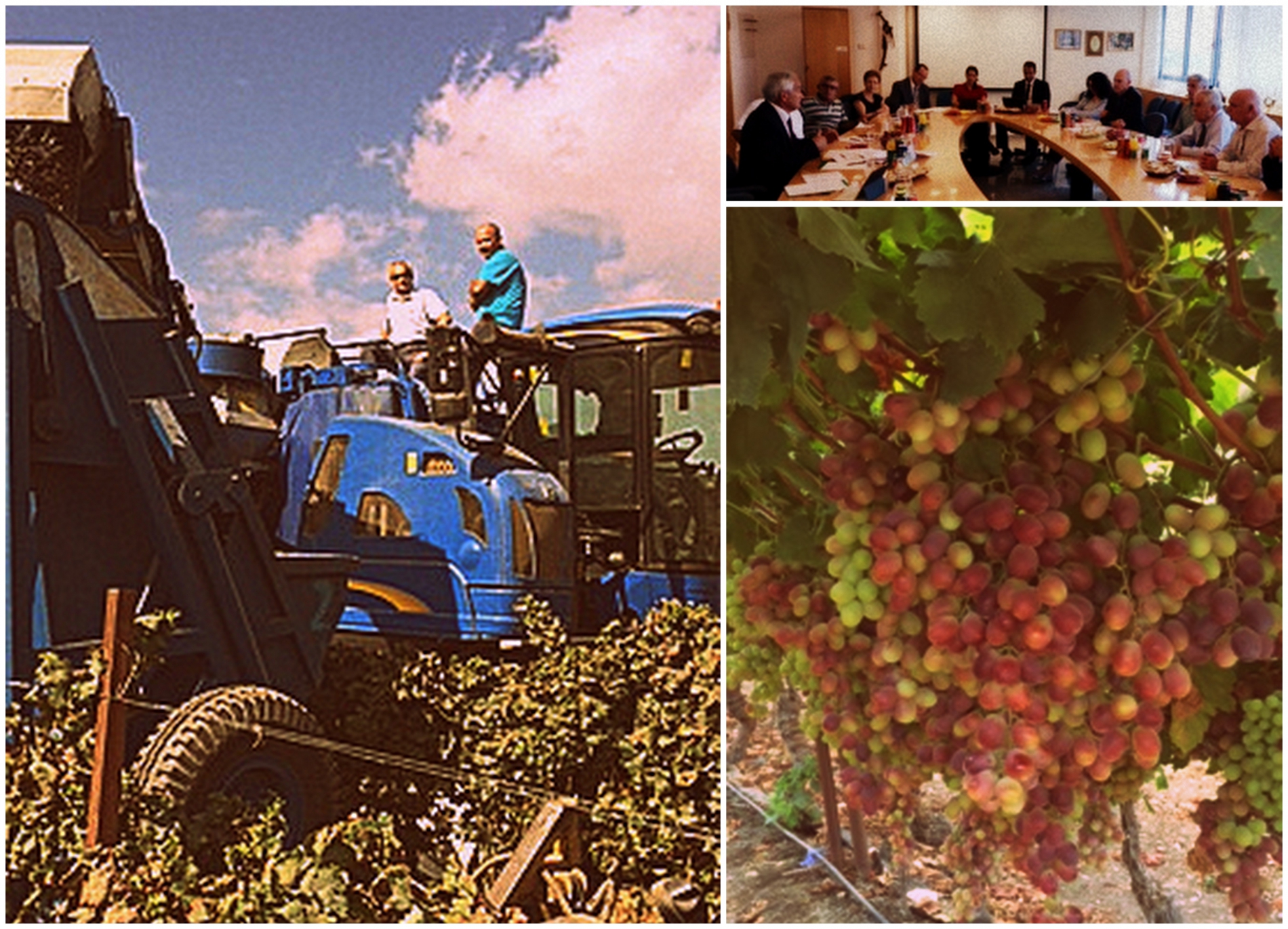14 Oct 2014
This Act supplements chapter V, Part VI of Book VI of the Rural and Maritime Fishing Code by Section L. 665-6 that reads as follows:"Sect. L. 665-6. - Wines, vine products, viticultural terroirs as well as ciders and perries, spirituous beverages and beers derived from local traditions are part of the protected cultural, gastronomic and landscape heritage of France. "Following in the footsteps of Uruguay or Argentina, which recognised wine as the "national drink", France is thus recognising special protection for wine and viticultural terroirs by integrating them into France's cultural, gastronomic and landscape heritage. It should be noted that the gastronomic French meal has been inscribed on the UNESCO Representative List of the Intangible Cultural Heritage of Humanity since 2010. This is a festive meal during which guests practice, for the occasion, the art of "good eating and drinking".
10 Oct 2014
Through analysis of the information available on manganese, the authors of the paper, V. D. Gómez-Miguel and V. Sotés, President of the OIV "Viticulture" Commission, provide a solid grounding on the issue of manganese in viticulture.This work was presented during the OIV meetings in April 2014 as part of the consultation with the OIV Member States regarding the manganese content in soils, clusters, musts and wines; the impact of soils on the manganese migration to the plant; the impact of vinification techniques on manganese levels in wines; and additional information on the toxicity of manganese.Download this publication (available in Spanish only)
09 Oct 2014
“OIV recommendations [are explicitly compared] to rules of EU law as regards the methods of analysis for determining the composition of products of the wine sector, the special requirements applicable, in terms of oenological practices, to imports of wine originating from third countries, and the purity and identification specifications of substances used in such practices.” (§61)“the recommendations (…) which (…) relate to new oenological practices, methods of analysis for determining the composition of products of the wine sector, or purity and identification specifications of substances used in oenological practices, are capable of decisively influencing the content of the legislation adopted by the EU legislature in the area of the common organisation of the wine markets.” (§63)“such recommendations, in particular by reason of their incorporation into EU law (…) have legal effects in that area for the purposes of Article 218(9) TFEU and that the European Union, while not a party to the OIV Agreement, is entitled to establish a position to be adopted on its behalf with regard to those recommendations, in view of their direct impact on the European Union’s acquis in that area.” (§64).
08 Oct 2014
Mr de Miguel stressed the importance of maintaining and preserving the accomplishments of this very specific agricultural sector, of avoiding market disruptions and of establishing excellent methods. Mr Aurand thanked Spain for its strong technical and scientific contributions to the different OIV commissions as well as for lending its expertise, which benefits the whole global vitivinicultural community.
07 Oct 2014
The 16 participants of 8 different nationalities in this year's class will meet more than 500 wine sector professionals in 24 producer and/or consumer countries across 5 continents.On this occasion, the Director General of the OIV, Jean-Marie Aurand, emphasised the importance of the network created over 25 years ago by this training programme, both with regard to the graduates and universities as well as the companies involved in this unique approach. He also reminded those present of the relevance of this international training programme in relation to the increased globalisation of wine markets.More information on the OIV MSc in Wine Management: www.oivmsc.org/en/.
06 Oct 2014
The conference brought together over 250 participants, mainly in the vitivinicultural sector. On this occasion, Jean-Marie Aurand gave a presentation on the situation of the world wine sector and its main developments. Australia is the 6th largest producer and 5th largest exporter in the world, with more than 60% of Australian production being exported.During his visit, the Director General met with the representative for the Ministry of Agriculture, Mr Travis Power (Assistant Secretary), as well as the Australian OIV delegate, Mr John Power, and the Australian OIV experts, Ms Creina Stockley (President of the "Safety and Health" Commission) and Tony Battaglene (President of the "Economic and Situational Analysis" Expert Group).
29 Sep 2014
Under the patronage of both the OIV and the Union Internationale des Oenologues, this event brought together more than 3,200 wines from 28 countries, and is the most important international wine competition on the Asian continent.Jean-Marie Aurand also took the opportunity to meet with the Korean authorities (the Ministry of Agriculture and the Ministry of Health) to speak about the OIV and its work. His hosts were very receptive, and although their country's wine production industry is small, wine consumption is increasing rapidly.As part of his trip, the Director General also flew to Japan, where he attended meetings with the President of the Japanese Society of Vitiviniculture, the Secretary General of the Japan Sommelier Association, the directors of the National Wine Agency, which reports to the Ministry of Economy, the directors of the Ministry of Agriculture and, finally, Mr Furukawa, a member of parliament sponsoring new draft legislation on wine.All were very interested in the OIV and its work, as Japan is keen to develop its own wine production industry and has recently established its first ever Geographical Indication for a wine.These encouraging meetings should be developed into ongoing relationships, in the context of closer ties with the OIV.
23 Sep 2014
The Director General of the International Organisation of Vine and Wine, Mr Jean-Marie Aurand, will present the first estimations of the vitivinicultural sector production on 23 October 2014.To attend this press conference, journalists are kindly asked to send an email with their name and their professional contact details to press@oiv.int.Date: Thursday 23 May 2014Time: 11amLocation: International Organisation of Vine and Wine, (OIV), 18 Rue d'Aguesseau, Paris 75008 - Metro station Madeleine or Concorde [see map]
22 Sep 2014
In the presence of the Minister for Agriculture, Mr Akram Chehayeb, and the Minister for Foreign Affairs, Mr Gebran Bassil, the Director General of the OIV, Mr Jean-Marie Aurand, recalled the actions taken recently for development of the wine sector. He also gave presentations during technical sessions on recent trends in the world wine market. Structured around four working sessions dedicated to the markets, environment, standardisation and development of trade, speakers from the OIV and Lebanon gave presentations on international and local aspects of vitivinicultural production. Accompanied by the Director General for Agriculture, Mr Louis Lahoud, the OIV delegation also visited the wine regions of Batroun, Jezzine, Chouf and Bekaa, as well as meeting producers around round tables on the topics of wine tourism, "boutique" wineries and wines derived from organic agriculture. At the end of these days, Mr Jean-Marie Aurand stressed the importance for Lebanon of ensuring increased participation of experts in the work of the OIV, of promoting native grape varieties by adding them to the OIV official list and of registering geographical indications for wines.
11 Sep 2014
During a meeting with the Minister and his departments, and representatives from the Ministry of Economy, the Standards Institute, the Agricultural Research Organisation, the Israel Export & International Cooperation Institute and the Israel Wine Grape Growers Board, Mr Aurand spoke about how the OIV operates and gave a presentation on the key features of the global vitiviniculture industry. At the request of the professional attendees, he also spoke about various aspects associated with consumption and communication in relation to alcoholic drinks, while Mr Yann Juban summarised the progress of the ongoing reforms to the structure of the European wine market. Mr Shamir spoke about the development of the Israeli vitiviniculture sector, which is currently adapting its standards on the basis of the OIV standards, and the sector's interest in building new markets. These meetings were complemented by visits to various production sites, including table grape production facilities (Tali Grapes in Lachish) and wineries, such as those at Barkan, Castel, Carmel, Ramot Naftali and Adar. At the request of the Israeli Minister, a wine presentation will be held at the OIV headquarters on 24 November 2014 to explore the special features of Israeli production. From Left to RightProf. Yoram Kapulnik (Director of the Agricultural Research Organisation), Yann Juban (Assistant to the Director General of the OIV), Ofer Sachs (Director of the Israel Export & International Cooperation Institute), Yair Shamir (Minister for Agriculture and Rural Development ), Jean-Marie Aurand (Director General of the OIV), Zahi Dotan (General Manager of the Israel Wine Grape Growers Board), Yair Shiran (Ministry of Economy, Head of the Industry Authority), Dalia Yarom (Director of the Chemistry Lab – the Standards Institute of Israel)
